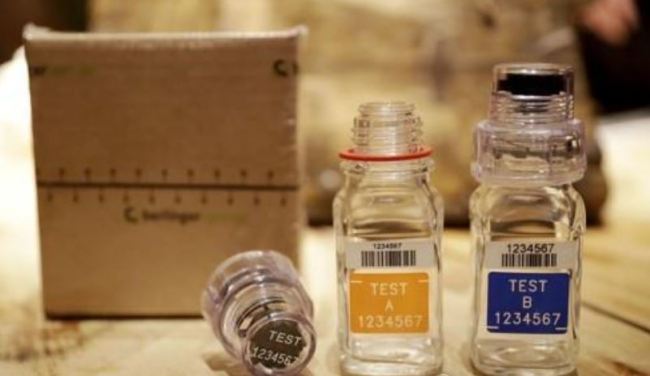The International Olympic Committee said Friday it carried out more than 14,000 doping tests last year ahead of the PyeongChang Winter Olympics, marking a whopping 70 percent on-year growth.
The IOC said the tests were conducted between April and December on around 6,000 athletes from 61 countries taking part in the 2018 Winter Games, which are scheduled to run from Feb. 9 to 25 in the alpine town of PyeongChang, 180 kilometers east of Seoul.
 |
Doping test instruments (AP-Yonhap) |
The committee has been struggling to ensure a drug-free competition amid allegations surrounding state-sponsored doping by Russia.
In December, Russia was officially banned from taking part in the PyeongChang Winter Olympics by the IOC.
Instead, athletes without traces of unapproved drugs were welcomed to participate as Olympic Athletes from Russia. The Russian flag and anthem, however, will not be allowed at the games.
"With extra scrutiny on Russian athletes, November and December saw testing on double the number of athletes from Russia than any other country," the IOC said in a statement.
The IOC also said it adopted what it calls an "intelligent" testing system in addition to increasing the number of tests conducted.
"This more targeted testing focuses on specific disciplines and nationalities that are at particular risk, as well as individual athletes and groups of athletes selected based on their ranking, and any suspicious change in performance or adverse testing history," the IOC added. "Altogether, it is the most rigorous pre-testing program in Olympic history." (Yonhap)








